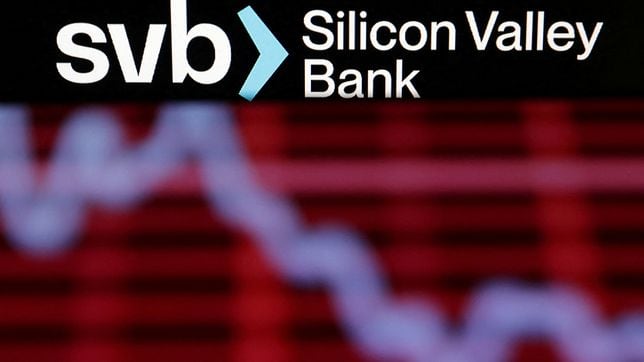Relief checks 2023 | Summary news 30 April
Follow the latest news on the US economy; debt ceiling negotiations, the Fed’s expected rate hike to fight inflation and another US bank set to collapse.
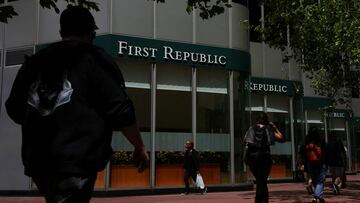
Show key events only
Inflation Relief: Latest Updates
Headlines | Sunday, 30 April 2023
- First Republic Bank on the verge of collapse, FDIC working on last-minute sale; set to take it over
- JP Morgan and PNC bidding to buy First Republic before Monday
- Despite First Republic turmoil, stocks ended week higher
- New March data showed inflation cooling, Fed still expected to raise rates in May
- In March, personal income increased $67.9 billion, or around 0.3 percent
- GDP growth slowed in Q1 2023, increasing only 1.1 percent
- Median home selling prices increased 2.6 percent in March
- The rate of families with an unemployed member fell three percent from 2021 to 2022 to 4.7 percent
- Federal Tax Day has passed for most, but counties in eight states got a extension
- Housing prices continue to fall, is it a good time to buy?
- Various states will continue to issue inflation relief checks and generous tax refunds in April
Related stories:
Housing prices are slightly down, but lack of stock keeping prices high
The number of homes being put on the market fell nearly 23% from the same time 12 months ago according to new data from Redfin, “one of the biggest declines since the start of the pandemic.” The lack of inventory available can be blamed in part on the historically low interest rates during the pandemic that led to the great migration.
Now many homeowners have mortgages with rates below 3% and blanche at losing that great rate with the average 30-year fixed-rate once again rising toward 7%. Additionally, the transition to remote working, along with the low mortgage rates, helped drive prices sky high over the past couple years. The combination has pushed many would-be homeowners out of the market, but without much supply prices have been slow to come down. The median sale price decreased by 2.8% in April, a similar decline to the month before.
However, that same lack of supply means that those homes on the market are selling quicker once again. Almost half the home on the market are selling in less than two weeks.
Over a quarter of baby boomers have no retirement savings
Knowing exactly how much you need to save for retirement is a difficult question to answer. The estimates vary depending on the person, where they live and what future health care needs will have to be met.
Most throw out a figure over $1 million, but the reality for baby boomers, those between ages 59 and 77, is that the median retirement savings is only $120,000. Worse, around 27% of those 59 and older have no retirement savings to speak of according to a new survey from Credit Karma.
Average weekly 30-yr fixed mortgage rate ticks up slightly, 15-yr down
Average weekly 30-year fixed rate mortgage rate rose for a second week, while the 15-year fixed rate dropped. The average 30-year fixed mortgage rate advanced 0.04% to 6.42% for the week ending 27 April.The average 15-year fixed mortgage rate decreased 0.05% to 5.71%.
The FDIC is reported to be preparing to place First Republic Bank under receivership. The Bank’s stock plunged after it revealed that they had lost $100 billion in deposits in the first quarter of the year.
According to Reuters, the FDIC decided that there was no more time to look for ways for the private sector to rescue the regional bank; thus, the move to put it in receivership.
The Social Security Administration continues to send monthly benefits to retired workers in 2023.
The SSA is also responsible for sending Supplemental Security Income benefits, disability and survivor benefits. This report tells us when to expect the payments for the month of May.
Starting at the onset of the covid-19 pandemic, Congress passed a law allowing the Food and Nutrition Service (FNS) to boost the amount households received from the Supplemental Nutrition Assistance Program (SNAP). Lawmakers, however, voted to end the Emergency Allotments (EA) as they were known as part of the Omnibus spending bill passed at the end of 2022.
While the SNAP EA program was in place it is estimated that it kept 4.2 million people out of poverty and reduced childhood poverty by 14 percent. As of 1 March, SNAP EA benefits ended in the 32 states that were still paying them along with the District of Columbia, Guam and the US Virgin Islands.
Households saw their monthly allotment drop by $95 on average, some will lose hundreds of dollars to put nutritious food on the table. For those that benefited from the increased payments, they will now have to make hard choices about what they spend their money on as the cost of living has increased. That will mean cutting back on how much they eat or putting off paying bills so they can put food on the table.
Every month, the Social Security Administration (SSA) sends out benefits for retired and disabled workers as well as survivors of contributors to the Old-Age, Survivors, and Disability Insurance program along with Supplemental Security Income (SSI) payments. In order to receive the money, a person must have a Social Security number (SSN), in addition to meeting certain credits.
Payments are then calculated by SSA on an individual basis, for Old-Age benefits they are based on earnings and retirement age. Once the calculation is done, payments are sent. However, on some occasions, recipients may not agree with the amount they receive.
Here’s what to do if you think that you have received the incorrect amount for your monthly Social Security payment.
The Social Security Administration (SSA) continues to send monthly checks for 2023 to retired workers. SSA also sends payments each month to recipients of Supplemental Security Income (SSI), as well as other disability and survivor benefits.
Here are the amounts and sending dates for the remaining months in this year.
The FDIC is working toward an orderly resolution of First Republic Bank or taking it into receivership.
On Wednesday, the Republican-controlled House of Representatives voted to pass the bill to raise the debt limit, cut spending, and reverse key pieces of President Joe Biden’s agenda.
While the bill does not include cuts to Social Security or Medicare to address the debt ceiling, it does include a measure against Medicaid and food stamps.
This report tells us how the bill could affect these two benefits.
The FDIC is expected to put First Republic Bank into receivership as time runs out for a rescue of the bank. What does the mean for unsecured deposits?
The Child and Dependent Care Credit is designed to ease the burden of childcare for working people. If you have to pay to ensure a child or dependent is looked after while you are at work, you will most likely be able to claim the credit.
The credit can cover up to 35% of work-related care expenses with the lowest amount offered standing at 20% of care costs. The upper limit of the cost covered is $3,000 for one qualifying person or $6,000 for two or more qualifying persons.
Claim your tax refund or forfeit it to the Treasury
The IRS gives taxpayers three years from the relevant Tax Day to claim a tax refund from the agency. This is the last year to claim a refund from 2019 if you had money that was owed to you but you failed to file a tax return. The IRS is holding onto an estimated $1.5 billion that went unclaimed.
Normally, that would be 15 April but due to the extension given during the covid-19 pandemic in 2019 taxpayers will have until 17 July 2023. After that date any money that was owed to you will be gone forever and put in the US Treasury coffers.
The financial troubles at Silicon Valley Bank in mid-March sent companies scrambling to secure money to cover payrolls. Over the just two days, the mass run on the bank that catered to tech-startups, their bosses and employees as well as venture capitalists helped drive the financial institution into FDIC receivership.
Its collapse though is still having ripple effects throughout the US economy, helping to pull down another San Francisco bank, First Republic, which also focuses on high net worth individual in tech and their compnaies.
Welcome to AS USA’s live blog on the latest financial news
The FDIC is working over the weekend to arrange an orderly resolution of First Republic Bank. Regulators have narrowed the bidding to two banks. Without purchase, the collapsing bank will be put into FDIC receivership.
Despite the latest banking turmoil, stocks finished the week on a positive note. New inflation data from March showed that price increases continue to slow. However, the Federal Reserve is still expected to raise raises when it meets next week.
In other news, the 2023 tax season has wrapped up, with nearly 86 million refunds sent to US taxpayers already. Those who have received an extension have until mid-October to submit their return.

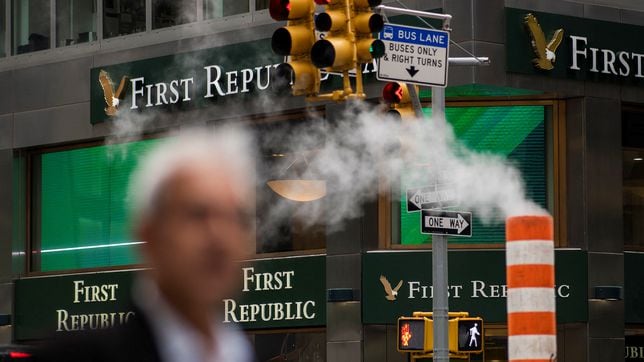
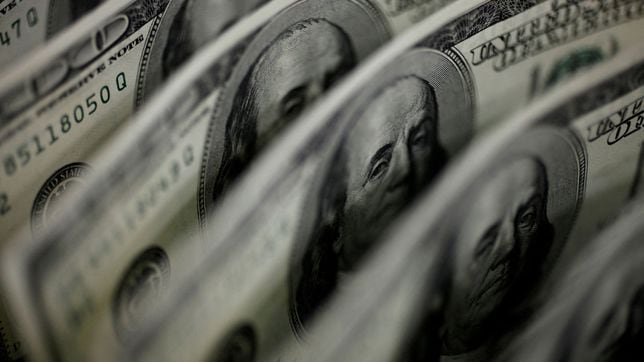
/cloudfront-eu-central-1.images.arcpublishing.com/diarioas/4KOUDCGBPJIWXOV7P2PZYNWVOM.jpg)
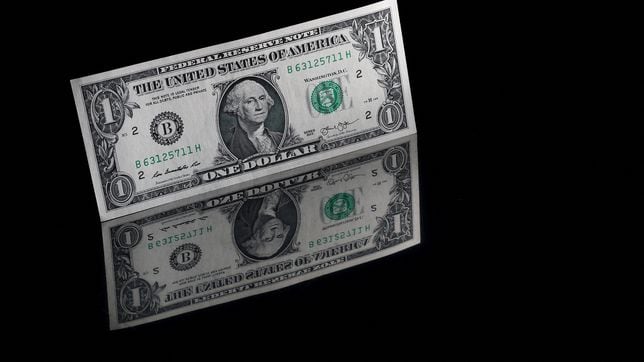


/cloudfront-eu-central-1.images.arcpublishing.com/diarioas/7KJD6RL64HCUM5LHSJCRUFLNZA.jpg)


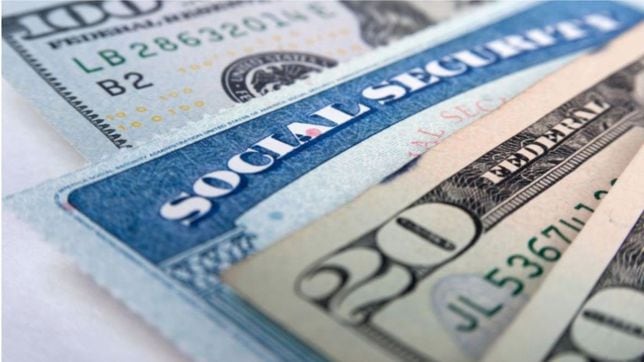
/cloudfront-eu-central-1.images.arcpublishing.com/diarioas/C5KFZ3DLSVM3ZGBSAQ4TQ6TXRM.jpg)

